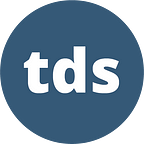To Solve Complex Problems, Find the Right Dots to Connect
The process of becoming a data scientist might sometimes feel like going through a never-ending shopping list: get more certificates, more algorithms, more Python tricks… What we often see in the articles we publish on TDS is that what we know can be less important than the crucial skill of connecting seemingly unrelated dots into an approach or a solution that works.
This week, we showcase three recent articles that highlight the benefits of leveraging—and sometimes improvising with—the experience you have. They tackle radically different projects and topics—from hydrology to Wordle—but they all share a similar creative streak. Let’s dive in!
- Can Transformers successfully classify complex texts? Jaren R Haber, Thomas Lu, and Nancy Xu patiently walk us through their fascinating project—from preprocessing to model training and beyond—where they use deep learning to help humans read and analyze scholarly resources, a pipeline they dub “computational literature review.”
- What’s the best way to solve a Wordle puzzle? It’s extremely unlikely you haven’t heard of Wordle by now—but how robust is your approach to solving each daily challenge? Likely not as robust as Sejal Dua’s. Sejal recently shared a deep dive into the best strategies for winning the game, and even created an AI-powered tool to help you find the right word faster.
- How AutoML can help with forecasting floods (and winning hackathons). Creativity and thinking on one’s feet are essential ingredients for doing well in data science and ML competitions; Mikhail Sarafanov and his team used every possible tool in their skill set to create a winning model for flood predictions in Russia. Mikhail’s writeup is an engaging, step-by-step case study of effective problem-solving.
We published dozens of other excellent explainers, analyses, and tutorials in recent weeks—here’s a quick sample of some of our recommended reads, each connecting dots in their own original way:
- Angela Shi shared an extremely comprehensive (and extremely useful) overview of supervised learning algorithms.
- If you’re ready to take the next step in your journey into the magic of databases, Matt Sosna recently published an accessible guide on intermediate SQL.
- For a thought-provoking perspective on the current state—and major challenges—of the concept of data citizenship, don’t miss Benn Stancil and Mark Grover’s new article.
- To help give your data visualization skills a boost, we’ve compiled some of our best and newest resources on the topic, covering plots, maps, Python libraries, and the general principles behind good design. (Also: cats.)
Thank you for spending time with our authors’ work—we hope you’ve learned something new and useful by exploring it.
Until the next Variable,
TDS Editors
